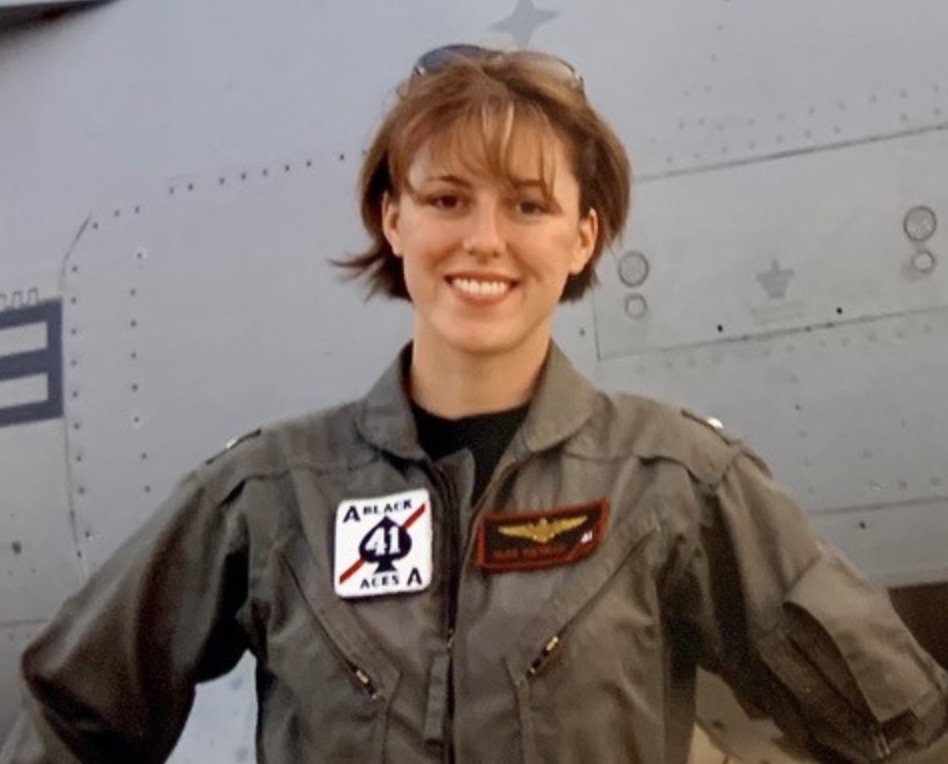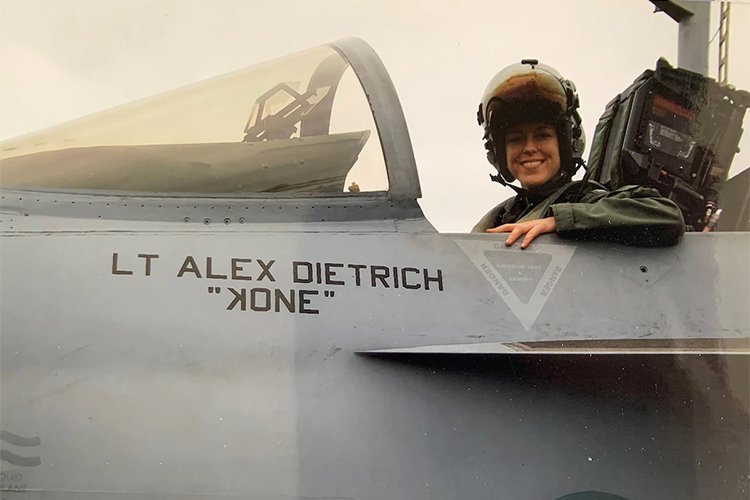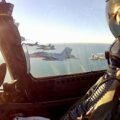Alex Dietrich (Ret.) served as one of the nation’s first female strike-fighter aviators as a F/A-18 pilot from 2001-2020.
Yesterday, the President held a press conference on the issue of Unidentified Anomalous Phenomena (UAP) due to a flurry of recent activity.
The nation was captivated by a suspected Chinese reconnaissance balloon floated across the continental United States. This incident prompted NORAD and other U.S. agencies to adjust their radar scans. The filter changes have exposed more unidentified objects, and another three were shot down over the weekend. These events highlight a longstanding domain awareness gap confronting our collective consciousness on three fronts: military defense, aviation safety, and scientific inquiry.
Officials have since disclosed that the Chinese military had previously breached U.S. airspace on at least four other occasions. We are now aware of these earlier incursions due to political and popular pressure to investigate and disclose UAP activity.
“UAP” replaces the antiquated (and stigmatized) term “UFO” to describe “anything in space, in the air, on land, in the sea or under the sea that can’t be identified,” per the FY22 National Defense Authorization Act. The bipartisan-sponsored UAP amendment requires DoD to establish a dedicated UAP program and publish annual unclassified reports to Congress (and thus the public) in the hopes of answering interminable questions.
Are they a threat? Are they natural phenomena? Are they disruptive tech? Should we shoot them down? Who has jurisdiction? If we don’t know what it is, how can we establish who is responsible and pays for the surveillance, response, and subsequent operations? It’s a slippery slope that deters even a hesitant first step toward attempting an answer.
I started asking the same questions nearly 20 years ago in an F/A-18F flying off the coast of California. My colleagues and I encountered something we could not explain: an anomalous flying object in broad daylight against a clear blue sky and calm waters. Our carrier strike group had been watching anomalous hits on the radar for days. Once airborne, we were vectored and asked to investigate. We merged and visually acquired the object, a matte white oblong shape with no apparent flight control surfaces, visible means of propulsion, or smoke trail. Yet it outmaneuvered us with ease. We communicated in real-time via radio and then debriefed the intelligence team and chain of command back aboard the ship. Another F/A-18F launched and managed to capture video of the object with its forward-looking infrared (FLIR). A screenshot of that video has since become an iconic symbol of UAP encounters.
The Nimitz encounter is one of many. Pilots and credible eyewitnesses on the ground for years have reported and verified objects with unknown provenance and exotic capabilities. It would be irresponsible to suggest that any or all of these reports represent the same tech or are of the same origin. They are, by definition, unidentified. But we do know that collectively these anomalies expose a blindspot in our ability to sense them in the first place, track them in real time, and predict where they might pop up next.
Are UFOs real? Yes. Are they a foreign adversary? Maybe. Are they extraterrestrial in nature? It’s possible. Should we keep investigating? Absolutely.
There are many potential answers to the UAP mystery, and those answers are not necessarily mutually exclusive. Truth is persistent. Whatever is happening here, it will be revealed. How quickly depends on our collective commitment to authorize and resource appropriate agencies who can effectively leverage sensor technology, capture crowdsourced reporting, and mine the collective data.
Despite persistent snickering, anytime the topic of UFOs is broached, NASA has managed to convene a committee of respected high-ranking representatives from the DoD, FAA, and academic institutions for an ongoing UAP study.
The Pentagon’s commitment has evolved from the small Advanced Aerospace Threat Identification (AATIP) program into the robust All-domain Anomaly Resolution Office (AARO). Private industry is rising to the occasion with rapid innovation and agile solutions.


Enigma Labs is on the leading edge with a mechanism to systematically capture and analyze reporting at scale.
Congress has also made an impressive bipartisan push on the issue, with Senators Gillibrand (D-NY), Rubio (R-FL), Warner (D-VA), Graham (R-SC), Heinrich (D-NM), Blunt (R-MO), and Representative Gallagher (R-WI) speaking out to break the taboo and push agencies to cooperate and take UAP seriously.
The partnership between multiple objective parties, systematic data collection, and careful analytical methods will move us toward reporting and listening, away from ridicule and stigma. We can move the needle away from the unknown and toward the known.
Be vigilant. Stay curious. Look up. We have barely tasted the sky.
Lieutenant Commander Alex Dietrich (Ret.) served as one of the nation’s first female strike-fighter aviators as a F/A-18 pilot from 2001-2020. She logged more than 1,250 flight hours, 375 carrier-arrested landings, and was awarded a Combat Air Medal for 206 combat missions flown in support of Operation Iraqi Freedom (OIF) and Operation Enduring Freedom (OEF). She was also awarded a Bronze Star medal for a boots-on-ground deployment to Afghanistan in 2010. She has since taught leadership, ethics, and critical thinking at the George Washington University, U.S. Naval Academy, and now serves on the faculty of the University of Colorado School of Engineering in Boulder. Dietrich is an advocate for Legacy Flight Academy, a foundation that promotes diversity in aviation, and Wings for Val, supporting women in aviation.

